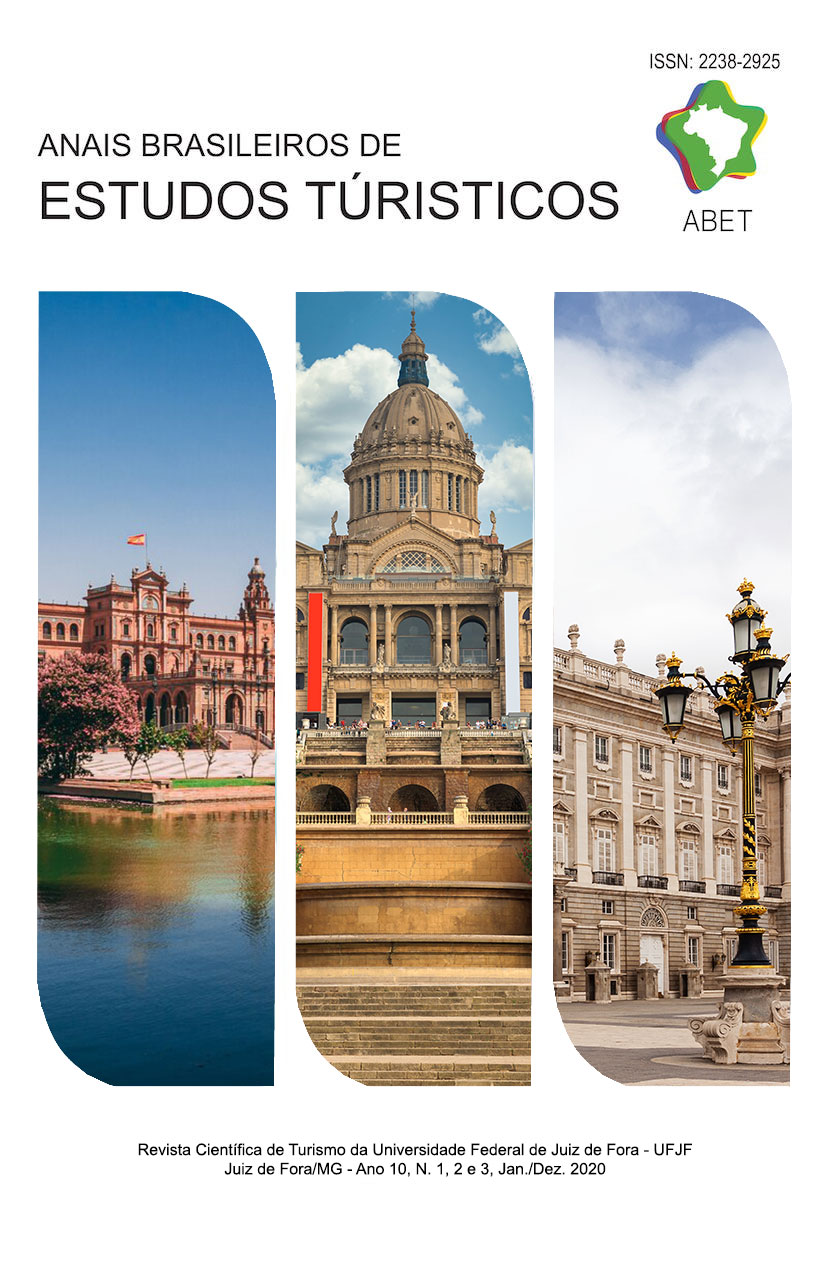Instagramable Tourist Places: authenticity through image in media society era
DOI:
https://doi.org/10.34019/2238-2925.2020.v10.30083Abstract
This theoretical essay aims to problematize the social desire for tourist travel in contemporary times. Resuming a critical tradition in the sociology of tourism that foresaw in the phenomenon the emergence of an increasingly imagetic social reality, the work hypothesis supports the idea that desire for tourist travel shares the same logic that characterizes the so-called midia society: a mimetic social practice, digitally shared, without the idea of surprise, and in which the goal is, especially, to recognize what other tourists are posting on social networks. That is what can be inferred from places made tourist by the influence of the social network of Instagram. To do this essay, bibliographic sources and secondary data extracted from electronic portals of magazines and newspapers were used. The essay has a theoretical orientation based on historical-dialectical materialism.
Downloads
Downloads
Published
How to Cite
Issue
Section
License
This journal provides immediate open access to its content, following the principle that providing free scientific knowledge to the public provides greater democratization of world knowledge.
Authors must agree to the following terms relating to copyrights:
(a) Authors keep all copyright and grant the to the journal the right of first publication, with the work simultaneously licensed under the Creative Commons Attribution License that allowing job sharing with recognition of authorship of the work and initial publication in this journal.
(b) Authors are allowed to assume additional contracts separately, for non-exclusive distribution of the version of the work published in this journal (e.g. publish in institutional repository or book chapter), with recognition of authorship and initial publication in this magazine.
(c) Authors are allowed and are encouraged to publish and distribute their work online (e.g. in institutional repositories or on your personal page) since they do not do this before or during the editorial process, as this can generate productive interchange, as well as increase the impact and citation of work aired. (See Effect of Free Access).















